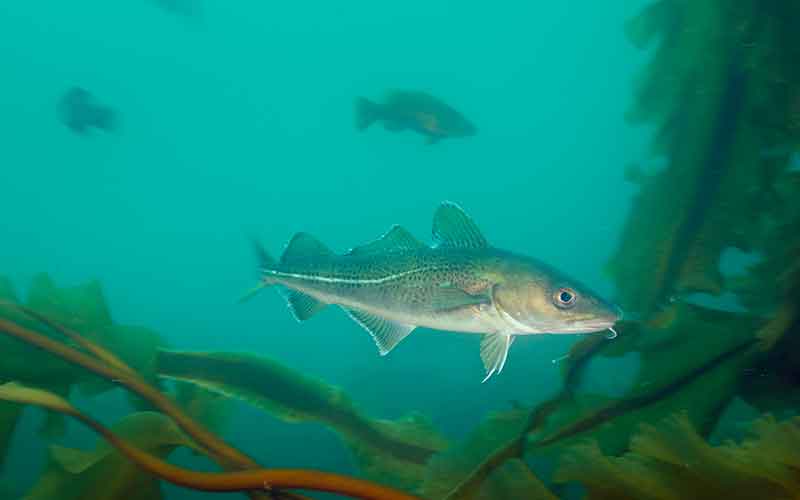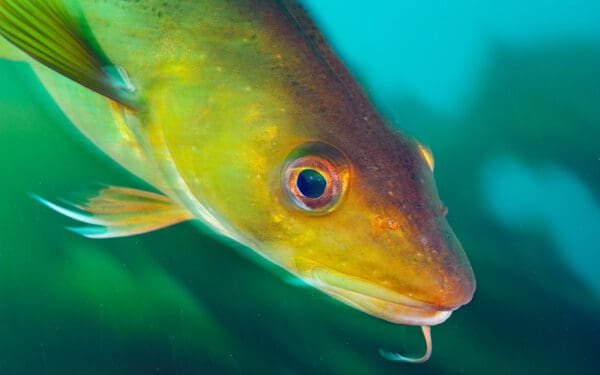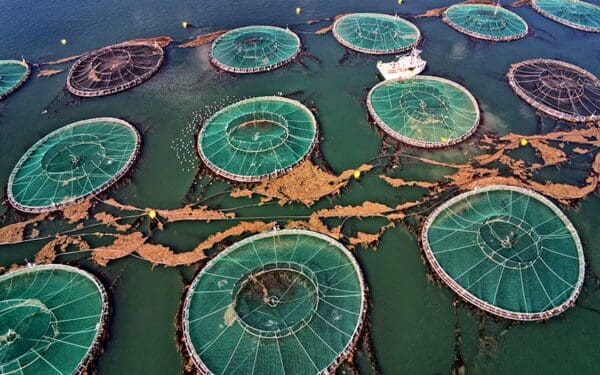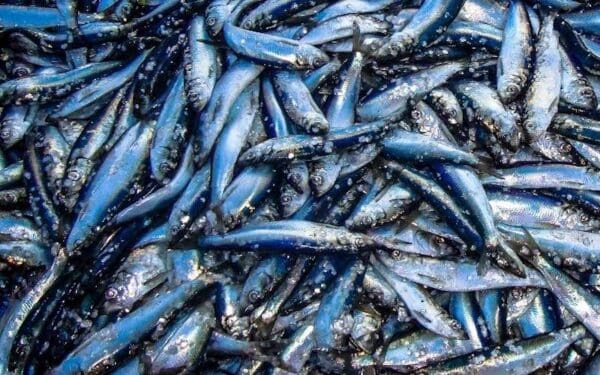
Atlantic cod is overfished, and the catch limits proposed for the next three fishing years will further harm our founding fish's chance of recovery. Photo: Brian Skerry
Atlantic cod has been overfished for decades, an unsustainable and unlawful fact that continues to this day. New England’s most iconic fish faces a grim outlook, and matters will only get worse unless strict and effective management action is taken. At their most recent meeting, New England’s regional fishery managers had the chance to help cod. Instead, they recommended new catch limits that will further harm cod’s chance of recovery.
Unfortunately, management failure is not anything new. New England routinely avoids the hard decisions needed to sustainably manage cod. If New England wants a future for Atlantic cod, management must focus on the long-term health of the fish and fishery instead of short-term profits for the few.
Fisheries Managers Ignore Law and Science
Recent scientific assessments confirm that the Atlantic cod population remains at historic lows. The cod fishery is managed as two separate stocks – Gulf of Maine cod and Georges Bank cod – and both continue to be fished well beyond their limits. Also, there are too few young and even fewer adult fish in the population, making it even harder for the fish to rebuild to a healthy level.
The primary mandate of our nation’s federal fisheries law, the Magnuson-Stevens Act (MSA), is to prevent overfishing. To do so, fishery managers must set annual catch limits for each managed stock – how much fishermen are allowed to catch – based on the best available science. The New England Fishery Management Council, under the oversight of NOAA Fisheries, is responsible for setting these catch limits for stocks in our region.
When stocks like Gulf of Maine and Georges Bank cod are overfished, the MSA is even more explicit: managers must not only prevent overfishing but they must end it immediately to help stocks rebound to healthy population levels as quickly as possible. NOAA Fisheries and the New England Council have repeatedly failed this legal mandate.
New Catch Limits Will Harm Atlantic Cod
The newly recommended catch limits for the 2020-2022 fishing years are set out in the Council’s proposed update to Atlantic cod’s management plan, called Framework 59. While the new catch limits for both cod stocks are lower than those in recent years, they still won’t end overfishing of cod or help rebuild the population to a healthy level.
Both stocks would benefit from being “incidental catch only.” This would mean fishermen cannot intentionally fish for cod, giving the fish a better chance at recovery.
Once again, the Council ignored that cod is on the brink of complete collapse and should be managed with the utmost caution. Rather than learn from the risky and unsuccessful management decisions that got the fishery to this point, the Council continued its pattern of avoiding the hard decisions needed to end overfishing and rebuild this once-lucrative fishery.
Help Us Fight for Cod
As CLF has done for decades, we will continue to advocate for the sustainable management of Atlantic cod and hold our fishery managers accountable to the law, so they end overfishing and set cod stocks on a healthy path toward rebuilding.
NOAA Fisheries still needs to approve the Council’s recommendation before it becomes final. That process includes a chance for you to make your voice heard by sending public comments to NOAA Fisheries on the updated catch limits.
Sign up CLF emails for so you don’t miss your chance to let the federal government know you want to see a sustainable future for Atlantic cod – and that these catch limits won’t get us there.




